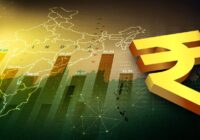Even someone as vulnerable as Elon Musk can, between emotional outbursts, muster the hypocrisy required by a CEO to reassure the press.
Elon Musk has never been shy about getting into the news cycle and has often been more inventive in finding pretexts for being talked about than in what most people consider his true calling: proposing revolutionary technologies. This time, at least in the eyes of both Tesla’s investors and suppliers, his talent for public relations may have taken a fatal turn, either for himself or his company, or both.
The Wall Street Journal cites a survey “sent privately by a well-regarded automotive supplier association to top executives [which] found that 18 of 22 respondents believe that Tesla is now a financial risk to their companies.” All well-managed enterprises do risk analysis to assess the likely impact of current and anticipated future events on their performance. We expect Tesla has done the same. But it rarely reports the results of that analysis to the public. No one knows how Tesla has taken on board the events of recent weeks, but Musk has assured The Journal in an email that “We are definitely not going bankrupt.”
Here is today’s 3D definition:
Definitely:
Possibly, when spoken by celebrity CEOs and politicians. With absolute certainty, when spoken by scientists and experts.
Contextual note
Events over the past few weeks have been, even by Musk’s standards, hyperreal. From a tweet that announced “secured” funding for taking Tesla private, to the belated revelation that the source of the funding was the Saudi Arabia sovereign wealth fund, followed by subsequent failures to confirm if not denials or even betrayals, a bevy of lawsuits, to a soul-rending interview with The New York Times, and finally a preaching message from Ariana Huffington telling him to slow down, to which Musk responded: nothing doing. David Gelles, The Times reporter who interviewed Musk, summarizes the events leading up to the interview and testifies to the uniqueness of Musk’s hyperreal personality.
Gelles reminds us that real CEOs never do what this hyperreal CEO does: deviate from prepared talking points. CEOs are not so much actors expressing themselves on the public stage than algorithms “programmed not to say anything that might make them appear vulnerable, and certainly not anything that might raise suspicions about their ability to lead a company.”
Gelles describes Musk as the very first CEO to have revealed “such vulnerability” and “candor,” which may be real or the latest technique Musk has found for reinforcing his hyperreal celebrity status. After all, earlier this year, in a calculated and financially successful move, he “shocked” the world by proposing recreational flamethrowers, something no other CEO of a serious company would be likely to do, now or in any foreseeable future.
Historical note
Tesla’s share price dropped by more than 20% in the aftermath of the current drama and now hovers around $300, making a mockery of Musk’s generous plan to offer $420 per share to take Tesla private. JPMorgan now estimates that the “stock should sink to $195 by December.” After promising that funding to go private was secured, investors and suppliers have lost faith in Musk’s descriptions of Tesla’s status and chances of survival, even when he says the car manufacturer isn’t going bankrupt.
Most experts, including former Ford and Chrysler executive Bob Lutz, believe that the best solution would be to replace Musk as CEO. But they are also asking themselves whether Tesla as a brand and a business has any meaning without Musk at the helm. Who could possibly replace him?
Lutz cites the case of Billy Ford who was ousted as CEO of Ford in 1999, but of course it was his grandfather, Henry Ford, who created the vision of the enterprise, not William Clay Ford, Jr. This may remind us of the story of Apple, when the board removed Steve Jobs as chairman and replaced him with John Sculley. But it was Jobs who appointed Sculley CEO, whereas Musk appears unwilling to share his baby with anyone, or even to delegate and a fortiori to ask for “adult supervision” (as Jobs did before his exile).
The case of Tesla is unique. It has been successful technologically speaking, but its success in the stock market has been due to a belief in the force of Musk’s hyperreal personality, his capacity to make people believe that he — and he alone — understands the future of every form of transport. Investors understand that the global economy of the 20th century was fueled by oil and automobiles.
Immune to disruptive thought, they naturally assume that transport will be the locomotive of the 21st century’s economy. Musk has offered them the hyperreal illusion of being capable of designing every form of efficient transport — from underground tubes to rockets for the colonization of Mars. But not only has he not turned Tesla into a profitable company, he has also successfully undermined the hyperreal image he created for himself. And it was that image that founded the “perception of value” that determined Tesla’s share price.
*[In the age of Oscar Wilde and Mark Twain, another American wit, the journalist Ambrose Bierce, produced a series of satirical definitions of commonly used terms, throwing light on their hidden meanings in real discourse. Bierce eventually collected and published them as a book, The Devil’s Dictionary, in 1911. We have shamelessly appropriated his title in the interest of continuing his wholesome pedagogical effort to enlighten generations of readers of the news.]
The views expressed in this article are the author’s own and do not necessarily reflect Fair Observer’s editorial policy.
Support Fair Observer
We rely on your support for our independence, diversity and quality.
For more than 10 years, Fair Observer has been free, fair and independent. No billionaire owns us, no advertisers control us. We are a reader-supported nonprofit. Unlike many other publications, we keep our content free for readers regardless of where they live or whether they can afford to pay. We have no paywalls and no ads.
In the post-truth era of fake news, echo chambers and filter bubbles, we publish a plurality of perspectives from around the world. Anyone can publish with us, but everyone goes through a rigorous editorial process. So, you get fact-checked, well-reasoned content instead of noise.
We publish 2,500+ voices from 90+ countries. We also conduct education and training programs
on subjects ranging from digital media and journalism to writing and critical thinking. This
doesn’t come cheap. Servers, editors, trainers and web developers cost
money.
Please consider supporting us on a regular basis as a recurring donor or a
sustaining member.
Will you support FO’s journalism?
We rely on your support for our independence, diversity and quality.






